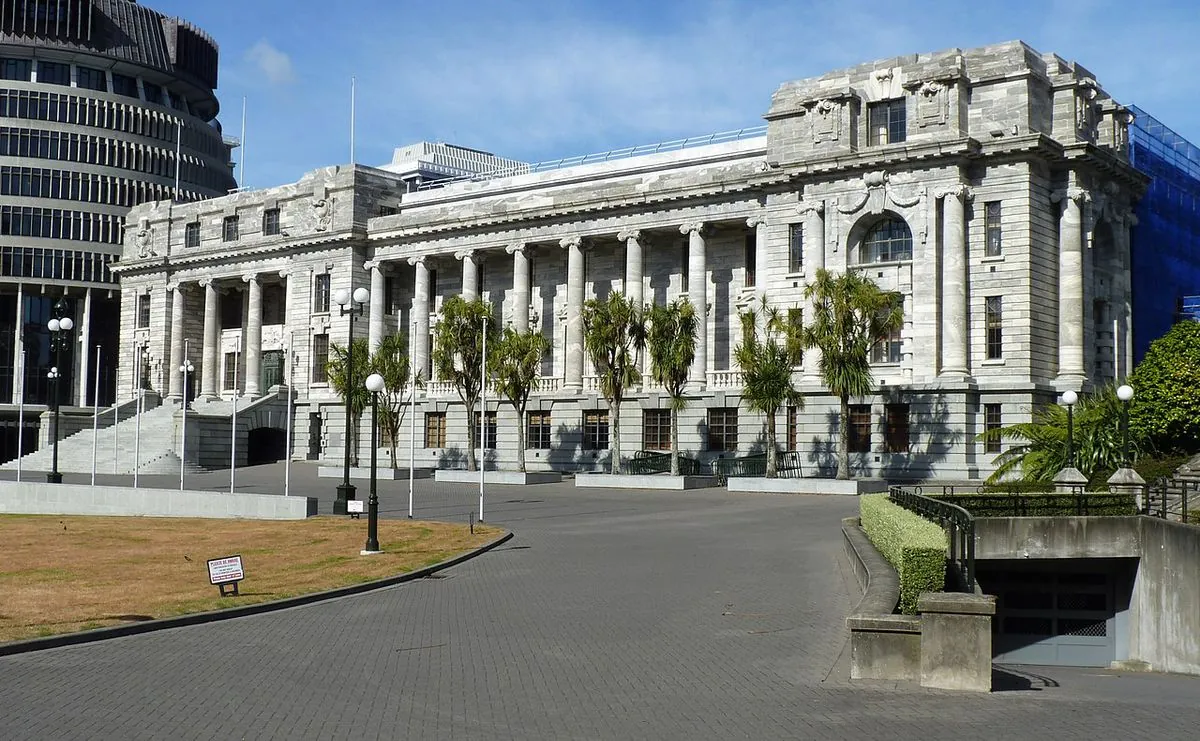New Zealand Proposes Controversial Bill to Redefine Treaty Principles
New Zealand plans to draft a bill reinterpreting the Treaty of Waitangi principles, sparking controversy. Two coalition parties oppose the bill becoming law, raising concerns about potential impacts on Maori rights.

In a move that has sparked significant debate, the New Zealand government has announced plans to draft legislation aimed at redefining the principles of the Treaty of Waitangi, the country's founding document. This development comes despite opposition from two of the three governing coalition parties, who have stated they will not support the bill becoming law.
The Treaty of Waitangi, signed in 1840 between British Crown representatives and approximately 540 Maori chiefs, serves as the cornerstone of New Zealand's constitutional framework. For nearly two centuries, it has guided legislation and policy, while also underpinning claims of Maori sovereignty. The treaty's significance is further emphasized by the fact that it exists in both English and Maori versions, with notable differences in interpretation between the two.
David Seymour, the Associate Justice Minister, stated that the cabinet has agreed to draft the Treaty Principles Bill. The proposed legislation aims to redefine how the treaty's principles are viewed and interpreted. Seymour explained, "The purpose of the Treaty Principles Bill is for Parliament to define the principles of the Treaty, provide certainty and clarity, and promote a national conversation about their place in our constitutional arrangements."
Key aspects of the bill include affirming the New Zealand government's full power to govern and make laws, recognizing Indigenous rights, and enshrining the principle of equality before the law. This legislation is a policy initiative of ACT New Zealand, a party that secured 8.6% of the vote in the 2023 election.

However, the bill faces significant hurdles. While coalition partners, the National Party and New Zealand First, have agreed to support the legislation through its first reading, both have explicitly stated they will not support its progression into law. Opposition parties have also voiced their disapproval, making the bill's chances of becoming law extremely slim.
Christopher Luxon, the Prime Minister of New Zealand, reaffirmed during a press conference that his party's position remains unchanged – they will not support the bill beyond its initial reading.
The proposed legislation has proven highly controversial, with many Maori and their supporters viewing it as a potential threat to Indigenous rights. This concern is particularly poignant given that Maori, who comprise approximately 20% of New Zealand's 5.3 million population, have historically faced significant social and economic challenges.
It's worth noting that Maori culture and identity have experienced a renaissance in recent decades, supported by policies aimed at addressing historical injustices. The Waitangi Tribunal, established in 1975, has played a crucial role in investigating alleged breaches of the treaty by the Crown. Additionally, the concept of "partnership" between Maori and the Crown, which emerged from court interpretations in the 1980s, has significantly influenced New Zealand's approach to governance and policy-making.
The current coalition government, which took office in 2023, has already begun reversing some policies of previous administrations, particularly those promoting the official use of the Maori language and enhancing Indigenous living standards and rights. This shift has raised concerns among advocates for Maori rights and cultural preservation.
As New Zealand approaches the introduction of this contentious bill later in 2024, the nation finds itself at a crossroads, balancing its commitment to honoring historical agreements with the desire for constitutional clarity. The outcome of this legislative process will likely have far-reaching implications for New Zealand's social, cultural, and political landscape for years to come.


































